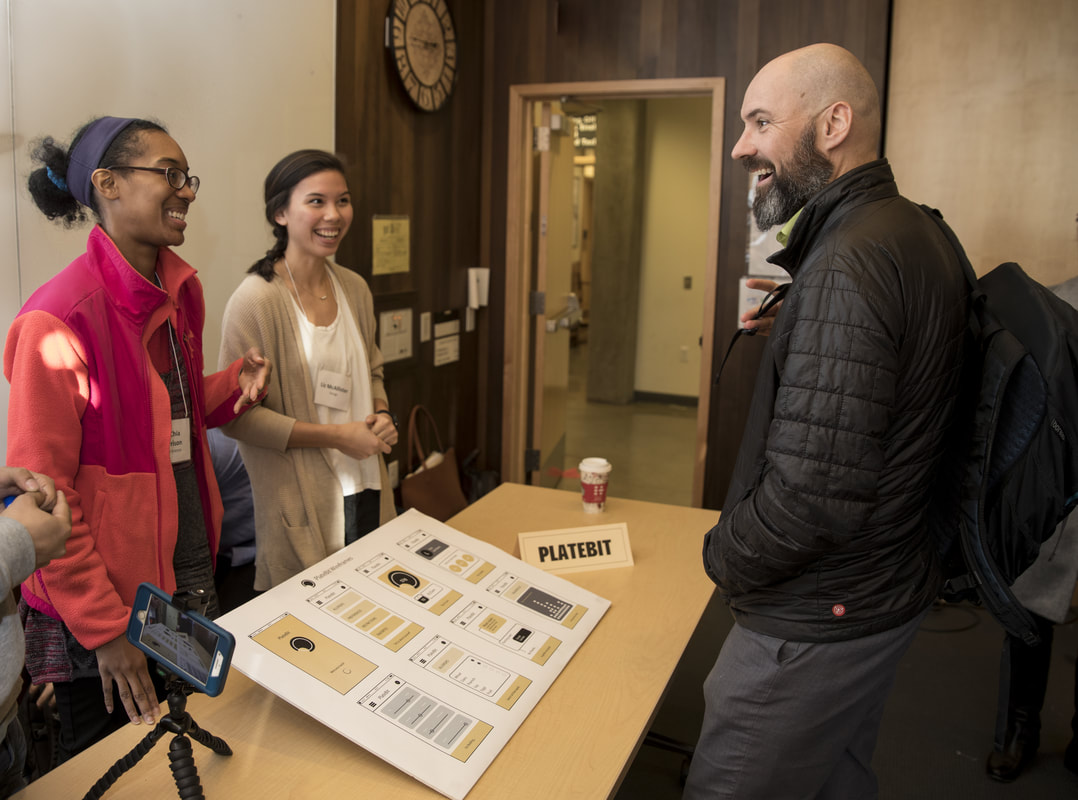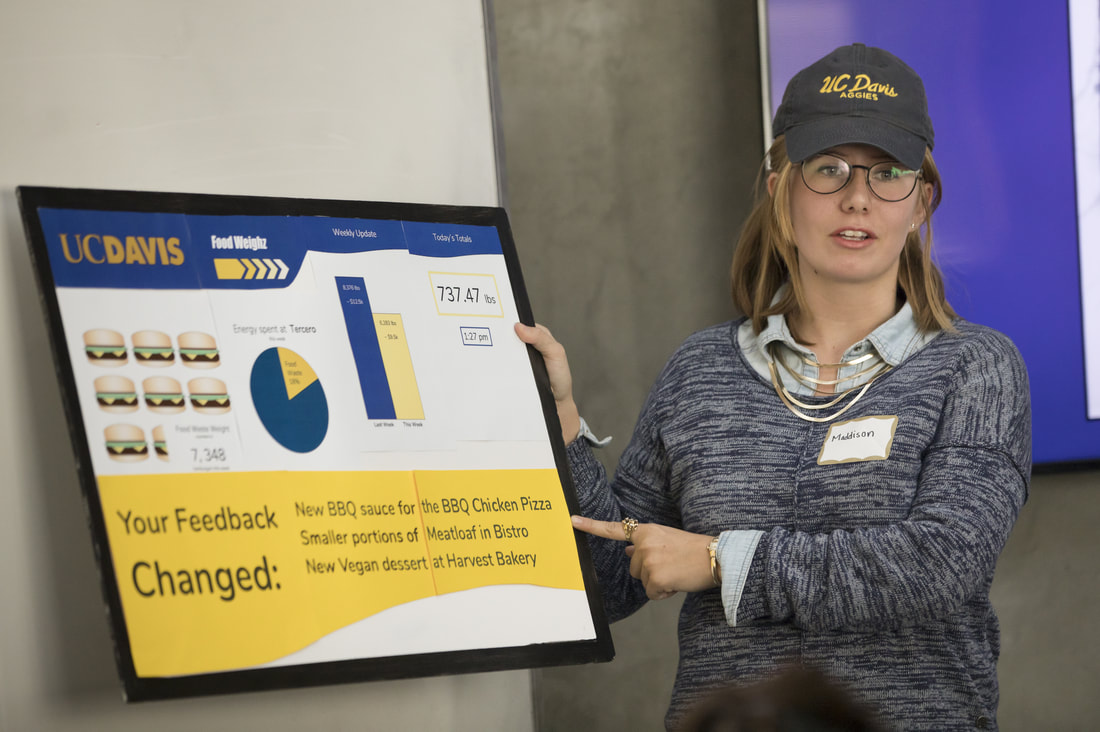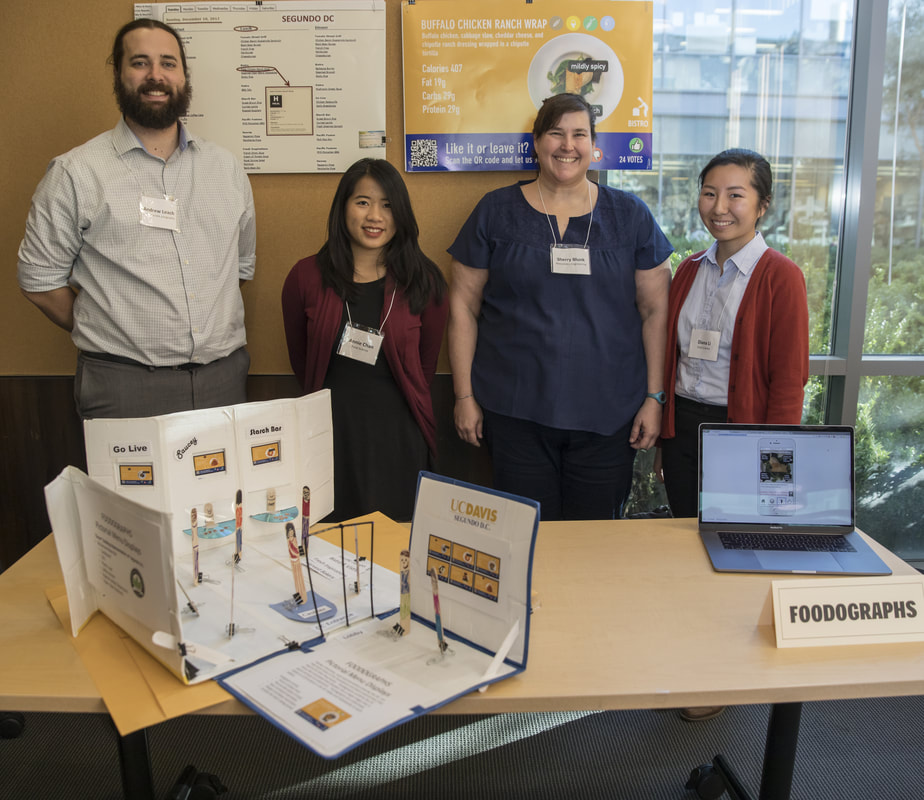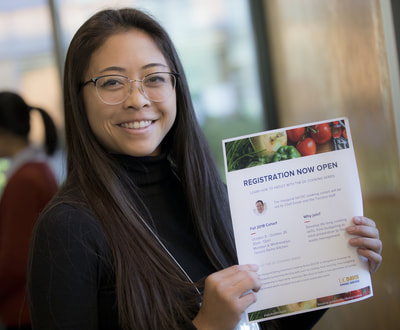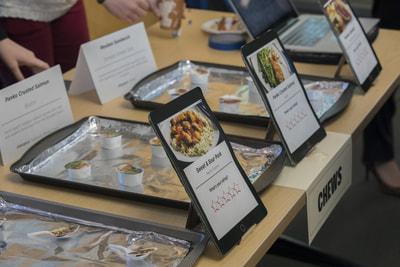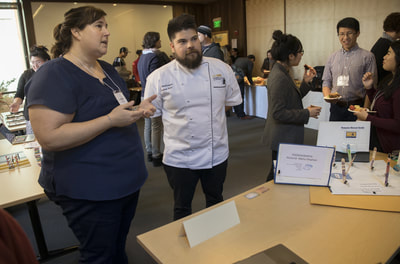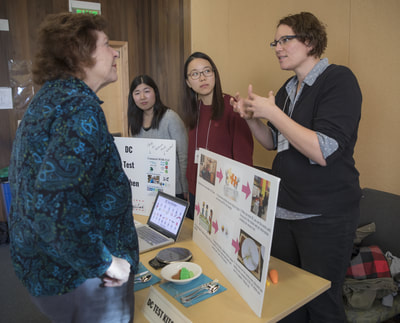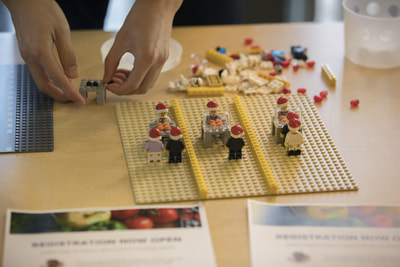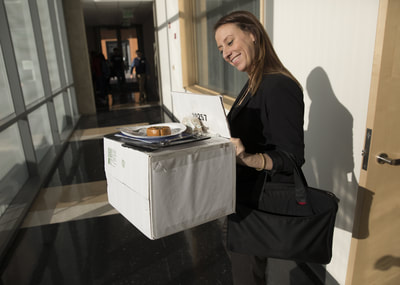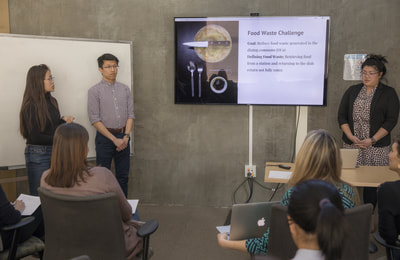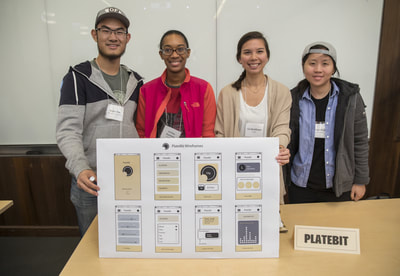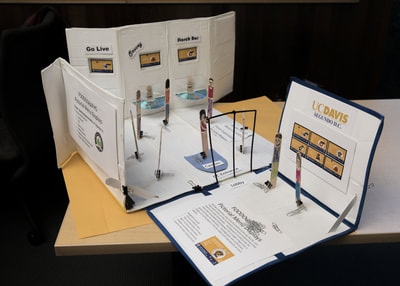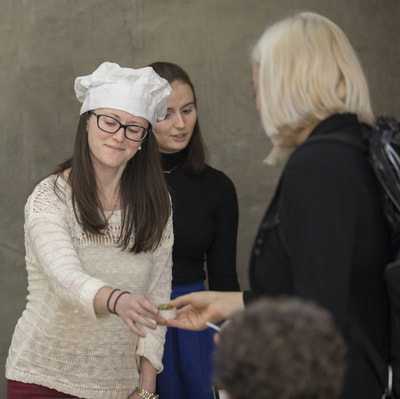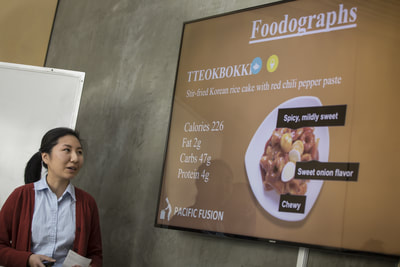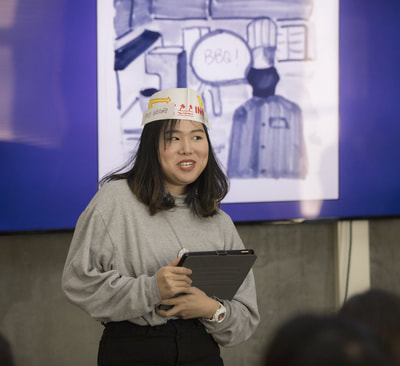FST 298 Design Thinking for Food is a groundbreaking, multidisciplinary course at the University of California, Davis that seeks to train the next generation of food system innovators to integrate social and technical approaches to addressing complex food system challenges by using the tools of Design Thinking and drawing on the insights of Food Studies.
Design Thinking is an approach to innovation that takes technical feasibility and business viability seriously, but its unique strengths come from its insistence on centering the experience of people, including users, collaborators and stakeholders. Food studies is an interdisciplinary academic field that is sensitive to the systems, structures, values and beliefs that shape eating habits and the food system. Together these ways of thinking (food studies) and doing (design thinking) provide a path to food system innovation that is shaped – from the very questions being asked, to the interventions proposed and the way they are communicated – by the real concerns and experiences of the humans whose behaviors will ultimately determine whether the those innovations are taken up, thereby becoming solutions, or not.
Students in Design Thinking for Food work in richly interdisciplinary teams, learning the skills of cross-disciplinary collaboration as they engage with stakeholders to address high impact food system challenges. The first two years the class focused on the challenge reducing food waste in dining services and involved a partnership with university dining services. In 2018 the class will focus on addressing food insecurity on campus.
You can find a past syllabus, which includes learning outcomes and the course schedule, here.
CLICK HERE to apply to be a part of this course in Fall 2018.
Design Thinking is an approach to innovation that takes technical feasibility and business viability seriously, but its unique strengths come from its insistence on centering the experience of people, including users, collaborators and stakeholders. Food studies is an interdisciplinary academic field that is sensitive to the systems, structures, values and beliefs that shape eating habits and the food system. Together these ways of thinking (food studies) and doing (design thinking) provide a path to food system innovation that is shaped – from the very questions being asked, to the interventions proposed and the way they are communicated – by the real concerns and experiences of the humans whose behaviors will ultimately determine whether the those innovations are taken up, thereby becoming solutions, or not.
Students in Design Thinking for Food work in richly interdisciplinary teams, learning the skills of cross-disciplinary collaboration as they engage with stakeholders to address high impact food system challenges. The first two years the class focused on the challenge reducing food waste in dining services and involved a partnership with university dining services. In 2018 the class will focus on addressing food insecurity on campus.
You can find a past syllabus, which includes learning outcomes and the course schedule, here.
CLICK HERE to apply to be a part of this course in Fall 2018.
